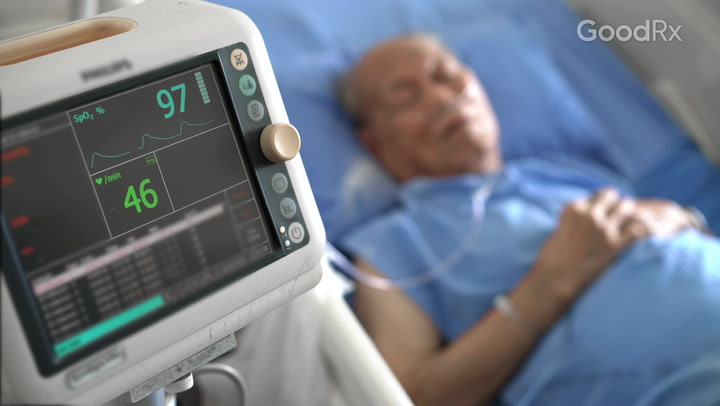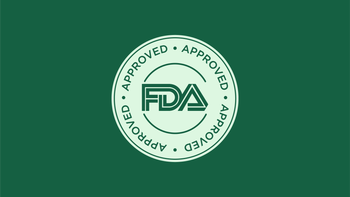9 Clopidogrel Interactions You Should Know About
Key takeaways:
Clopidogrel is a medication that prevents blood clots from forming. This can lower the risk of heart attack and stroke.
Medications like proton pump inhibitors (PPIs), fluoxetine (Prozac), and fluconazole (Diflucan) can make clopidogrel less effective. Grapefruit juice can also make clopidogrel less effective.
Taking clopidogrel with certain medications can increase your risk of bleeding. This includes other antiplatelet medications, anticoagulants, and NSAIDs.
Access savings on related medications
Table of contents

Clopidogrel (Plavix) is a medication used to prevent blood clots. It’s part of a group of medications called antiplatelets. They work by preventing specific blood cells (platelets) from clumping together.
Clopidogrel can help lower the risk of heart attack or stroke in certain people. This includes people who have had a heart attack or stroke in the past, and people with unstable angina. It’s also used in various other situations.
Clopidogrel is a life-saving medication for some people. But certain medications, supplements, and foods can interact with it — which could increase the risk of side effects or make one of your medications less effective.
Save over 40% on Qsymia with GoodRx
Discover the once daily Qsymia for weight management. Qsymia is for adults and children 12-17 in combination with a healthy diet and regular exercise.

Below, we’ll discuss nine common clopidogrel interactions and how you can manage them. But keep in mind that this is not an exhaustive list. So be sure to give your healthcare provider and pharmacist an updated list of all medications and supplements you take.
1. Proton pump inhibitors
Proton pump inhibitors (PPIs) treat conditions like gastroesophageal reflux disease (GERD) and stomach ulcers. They work by lowering the amount of acid produced in your stomach. Examples of PPIs include:
Omeprazole (Prilosec)
Esomeprazole (Nexium)
Pantoprazole (Protonix)
Lansoprazole (Prevacid)
Dexlansoprazole (Dexilant)
PPIs are sometimes prescribed with clopidogrel to prevent stomach bleeds during clopidogrel treatment. But some PPIs may interact with clopidogrel by blocking a special enzyme (protein) in the body. This enzyme metabolizes (activates) clopidogrel so that it can do its job of preventing blood clots. But clopidogrel may be less effective if you take it with PPIs.
The manufacturer of clopidogrel recommends using pantoprazole, lansoprazole, or dexlansoprazole if you need a PPI while taking clopidogrel. These PPIs probably interact less with clopidogrel than the others. You should avoid taking omeprazole and esomeprazole with clopidogrel. They’re the most likely to interact.
Despite these recommendations from clopidogrel’s manufacturer, some researchers don’t think the interaction between PPIs and clopidogrel is that strong. In fact, the American Heart Association and American College of Cardiology don't have strong recommendations about taking PPIs with clopidogrel. Still, don’t take PPIs and clopidogrel together without talking to your healthcare provider first.
2. Medications that affect clopidogrel metabolism
As mentioned, certain liver enzymes metabolize clopidogrel. Along with PPIs like omeprazole and esomeprazole, other medications can interfere with these enzymes. Some medications may make clopidogrel less effective. Examples include fluconazole (Diflucan), voriconazole (Vfend), and fluoxetine (Prozac).
Similarly, other medications can make these enzymes more active. This may raise levels of clopidogrel in the body, and cause a higher chance of bleeding. Examples include rifampin (Rifadin) and phenytoin (Dilantin, Phenytek).
3. Anticoagulant medications
Anticoagulants treat and prevent blood clots. They’re used in several medical conditions. This includes blood clot-related conditions and atrial fibrillation. Anticoagulants manage blood clots by preventing certain blood cells and proteins from binding together. Examples of anticoagulant medications include:
Direct oral anticoagulants, like apixaban (Eliquis), dabigatran (Pradaxa), and rivaroxaban (Xarelto)
Warfarin (Coumadin, Jantoven)
Enoxaparin (Lovenox)
Anticoagulants raise the risk of bleeding — especially when combined with antiplatelet medications like clopidogrel. But despite a higher bleeding risk, your healthcare provider may recommend combining clopidogrel and an anticoagulant in some situations. Your provider can talk to you about the risks and benefits of this.
It's a good idea to know the signs and symptoms of bleeding while taking clopidogrel, especially if you’re also taking an anticoagulant. If you experience any of these symptoms, and they seem severe, seek immediate medical care:
Blood in your urine or stools
Vomiting or coughing up blood
Unexplained bruising that doesn’t improve
Unexplained or frequent nosebleeds
Abdominal pain or swelling
4. Other antiplatelet medications
Sometimes your healthcare provider will recommend taking more than one antiplatelet medication. Often, this includes aspirin and clopidogrel, and is called dual antiplatelet therapy. Examples of other antiplatelet medications include aspirin/dipyridamole (Aggrenox), ticagrelor (Brilinta), and prasugrel (Effient).
Dual antiplatelet therapy is necessary for some people. For example, if you’ve had a heart attack, your healthcare provider may recommend combining clopidogrel and aspirin to avoid a heart attack in the future. But dual antiplatelet therapy may also raise the risk of bleeding.
Before taking antiplatelet medications, talk to your healthcare provider about whether you have any personal risk factors for bleeding. Depending on your risk, your provider may limit how long you take these medications. Or they may recommend avoiding them altogether.
If you take antiplatelet medications, watch for signs of bleeding or unusual bruising. If you have any signs of uncontrollable bleeding, seek immediate medical care.
5.NSAIDs
Nonsteroidal anti-inflammatory drugs (NSAIDs) are common medications to treat pain, fever, and inflammation. They’re available as over-the-counter (OTC) and prescription medications. Examples include ibuprofen (Advil, Motrin), naproxen (Aleve, Naprosyn), and aspirin (which is also an antiplatelet medication).
Taking NSAIDs with clopidogrel can increase the risk of bleeding. Let your healthcare provider know if you take any NSAIDs, even if they’re OTC. They can help you weigh the risks and benefits of combining NSAIDs and clopidogrel. If you and your provider decide you need both medications, watch for signs and symptoms of bleeding and bruising.
6. Some antidepressants
Antidepressants treat a variety of mental health conditions, including depression and anxiety. But some antidepressants raise the risk of bleeding. When taken with clopidogrel, this risk is higher.
Selective serotonin reuptake inhibitors (SSRIs) and serotonin and norepinephrine reuptake inhibitors (SNRIs) are two groups of antidepressants that can raise bleeding risk. Examples of SSRIs include sertraline (Zoloft) and escitalopram (Lexapro). Examples of SNRIs include venlafaxine (Effexor XR) and duloxetine (Cymbalta).
If you take an antidepressant, talk to your provider about the risks and benefits of taking it with clopidogrel. They may just ask you to monitor for signs of bleeding or unusual bruising.
7. Opioids
Opioids are most commonly used to treat moderate to severe pain. Examples include morphine (MS Contin) and hydrocodone/acetaminophen.
Opioids may prevent clopidogrel from being absorbed by the body. This makes clopidogrel less effective at preventing blood clots. For example, in one small study of people receiving intravenous (IV) morphine and clopidogrel, morphine reduced clopidogrel’s effectiveness.
If you take opioids, talk to your healthcare provider before starting clopidogrel. They can help you weigh the risks and benefits of this combination.
8. Repaglinide
Repaglinide is a medication that treats Type 2 diabetes. It works by lowering your blood sugar. Taking repaglinide with clopidogrel can raise blood levels of repaglinide. This can cause your blood sugar to drop too low (hypoglycemia). If hypoglycemia is left untreated, it can be dangerous and life-threatening.
Taking clopidogrel with repaglinide isn’t recommended. Before starting clopidogrel, talk to your healthcare provider if you’re taking repaglinide. They may recommend another antiplatelet medication instead of clopidogrel. Or they may recommend an alternative diabetes medication to replace repaglinide.
9. Grapefruit
People taking clopidogrel may need to avoid eating grapefruit or drinking grapefruit juice. Grapefruit juice blocks an enzyme that helps activate clopidogrel.
Grapefruit juice may make clopidogrel less effective. But it’s unclear exactly how important this interaction is in real-life situations. Before eating grapefruit or drinking grapefruit juice, talk to your healthcare provider. They may recommend avoiding grapefruit products altogether while taking clopidogrel.
The bottom line
Clopidogrel can prevent blood clots from forming, which can lower the risk of heart attack and stroke. But it has drug interactions with other medications, supplements, and food. For example, certain medications, like PPIs, fluoxetine, and fluconazole, may make clopidogrel less effective. This means that it may not work as well to prevent blood clots. Other medications like other antiplatelet medications, anticoagulants, NSAIDs can increase your risk of side effects like bleeding.
If you have a prescription for clopidogrel, ask your healthcare provider and pharmacist to check for clopidogrel interactions. They can help you weigh the risks and benefits of any potential interactions. Your provider can make adjustments to your medications if needed.
Why trust our experts?



References
Abraham, N. S., et al., (2010). ACCF/ACG/AHA 2010 expert consensus document on the concomitant use of proton pump inhibitors and thienopyridines: A focused update of the ACCF/ACG/AHA 2008 expert consensus document on reducing the gastrointestinal risks of antiplatelet therapy and NSAID use. Circulation.
Beavers. C. J., et al. (2022). Clopidogrel.
Bryant Ranch Prepack. (2021). Clopidogrel bisulfate [package insert].
Hobl, E. L., et al. (2014). Morphine decreases clopidogrel concentrations and effects: A randomized, double-blind, placebo-controlled trial. Journal of the American College of Cardiology.
Holmberg, M. T., et al. (2014). Grapefruit juice inhibits the metabolic activations of clopidogrel. Clinical Pharmacology and Therapeutics.
Kazui, M.m et al. (2010). Identification of the human cytochrome P450 enzymes involved in the two oxidative steps in the bioactivation of clopidogrel to its pharmacologically active metabolite. Drug Metabolism and Disposition: The Biological Fate of Chemicals.
MedlinePlus. (2021). Bleeding.
NorthStar RxLLC. (2022). Clopidogrel [package insert].
InformedHealth.org. (2017). What are blood thinners (anti-clotting medication) and how are they used?. InformedHealth.org.
Serbin, M. A., et al. (2016). Clopidogrel-proton pump inhibitor drug-drug interaction and risk of adverse clinical outcomes among PCI-Treated ACS Patients: A meta-analysis. Journal of Managed Care & Specialty Pharmacy.
U.S. Food and Drug Administration. (2022). Drug development and drug Interactions | table of substrates, inhibitors and inducers.
Valgimigli, M., et al. (2021). Dual antiplatelet therapy after PCI in patients at high bleeding risk. The New England Journal of Medicine.
Yasuda, H., et al. (2015). Treatment and prevention of gastrointestinal bleeding in patients receiving antiplatelet therapy. World Journal of Critical Medical Care.
Was this page helpful?
Related Articles
Browse medications
View AllResearch prescriptions and over-the-counter medications from A to Z, compare drug prices, and start saving.























